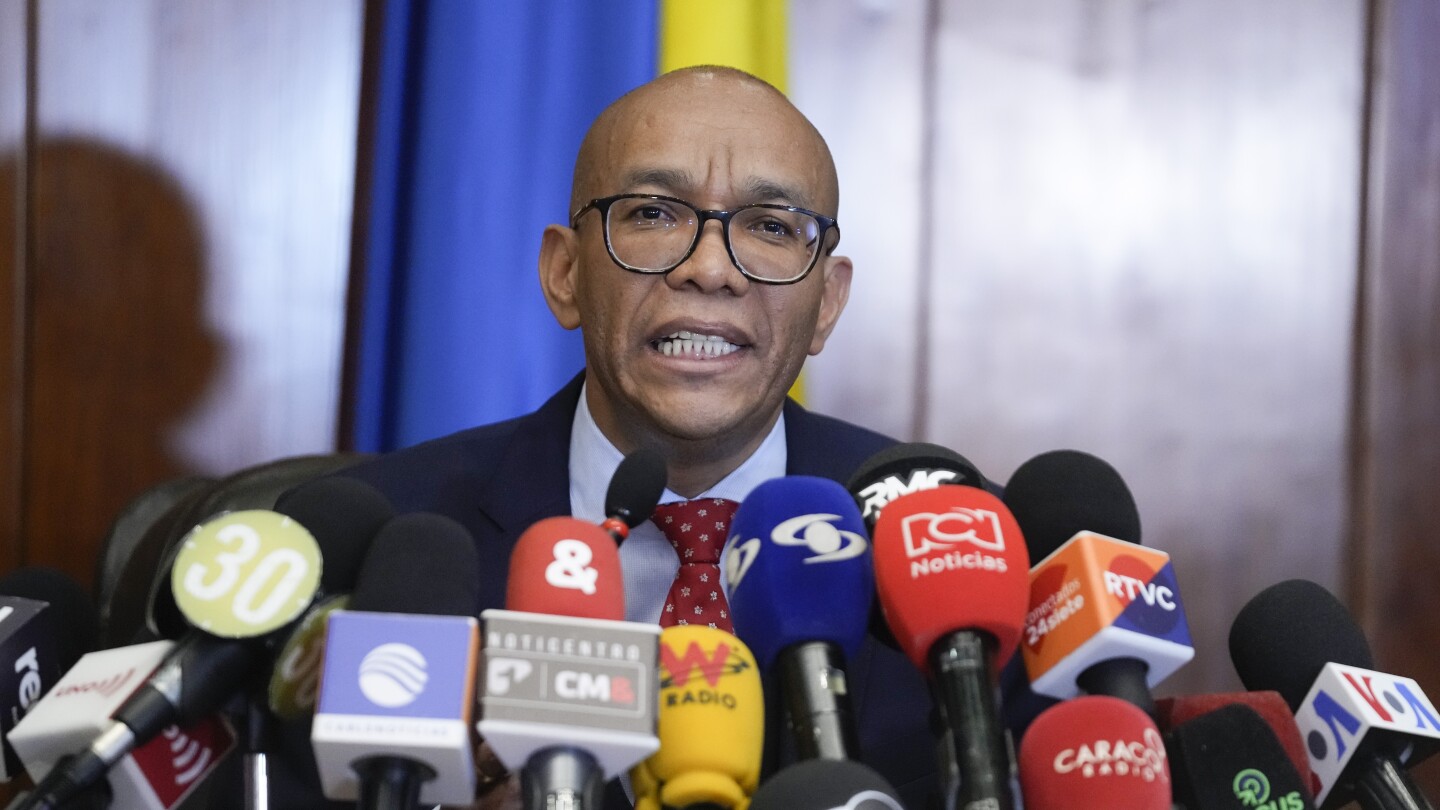BOGOTÁ, Colombia (AP) — Colombia’s Supreme Court on Tuesday selected the nation’s new attorney general following a month of deliberations that were interrupted by protests outside the court and complaints from President Gustavo Petro, who argued the judges were stonewalling his nominees.
Ultimately the court selected Luz Adriana Camargo, a seasoned prosecutor with few political ties, as the country’s lead prosecutor, with 18 of the 23 judges voting in favor. The attorney general in Colombia must be ratified by a two-thirds majority of the court, whose members are elected by the judicial branch.
Camargo will lead the Attorney General’s Office, a branch of the Colombian state that has long been criticized for favoring its political allies and pursuing criminal investigations for political ends.
Though she is known to have worked closely with Colombia’s defense minister, observers are hoping that Camargo can make the Attorney General’s Office more independent and impartial.
“Throughout her career she has been known for her independence from political powers,” said Jorge Restrepo, a political analyst who directs the Bogota-based CERAC think tank. “She doesn’t come from a political party and she hasn’t been part of any government Cabinet, and that sets her apart from her predecessors.”
Camargo is a an experienced prosecutor who led investigations in the early 2000s against lawmakers accused of being elected with the support of right-wing paramilitary groups.
She also served in the International Commission Against Impunity in Guatemala, a group funded by the U.N. that investigated corruption cases and war crimes in the Central American country. During her time in Guatemala, Camargo worked closely with Colombian Defense Minister Ivan Velasquez, who then directed the anti corruption group.
As the nation’s lead prosecutor, Camargo will oversee numerous cases that involve the nation’s armed groups, but also high profile corruption cases, including an ongoing probe into the financing of Petro’s presidential campaign, in which the president’s eldest son, who is currently under house arrest, has been accused of money laundering.
Camargo will also have to manage a long-running probe against former President Alvaro Uribe, who has been accused of obstructing efforts by a Colombian senator to look into his possible ties to paramilitary groups in the 1990s.
Camargo was picked from a panel of three nominees that President Petro presented to the Supreme Court last year.
She was not initially the candidate with the most votes from the judges – who staged several rounds of voting over the past four weeks to reach a two-thirds majority.
Instead Amelia Perez, another veteran prosecutor, had led voting. But her candidacy lost steam after news outlets in Colombia republished a series of tweets written by her husband, in which he criticized the arrest of Petro’s son, and also railed against recent decisions by the Supreme Court.
On Tuesday morning, before Camargo was elected, Perez presented a letter to the court, in which she withdrew her candidacy.
During the first round of voting on Feb 8 hundreds of supporters of President Petro showed up outside the court, urging the judges to select a new attorney general as soon as possible so that a conservative prosecutor who was then serving as the attorney general’s deputy, would not be left temporarily in charge. The protestors briefly blocked the entrance to the building and were dispersed with teargas by riot police.
Petro urged his followers to refrain from violence but he also backed the protests, and published a message on X, in which he said that the protesters were angry because “the mafia was taking over Colombia’s justice system.”
Camargo’s predecessor, Francisco Barbosa, ended his four-year term in early February. Critics accused Barbosa of undermining the investigation against former President Uribe, which prosecutors tried to have dismissed last year. Barbosa had been picked for the role after serving as a legal adviser to President Ivan Duque, a conservative from Uribe’s Democratic Center party.

